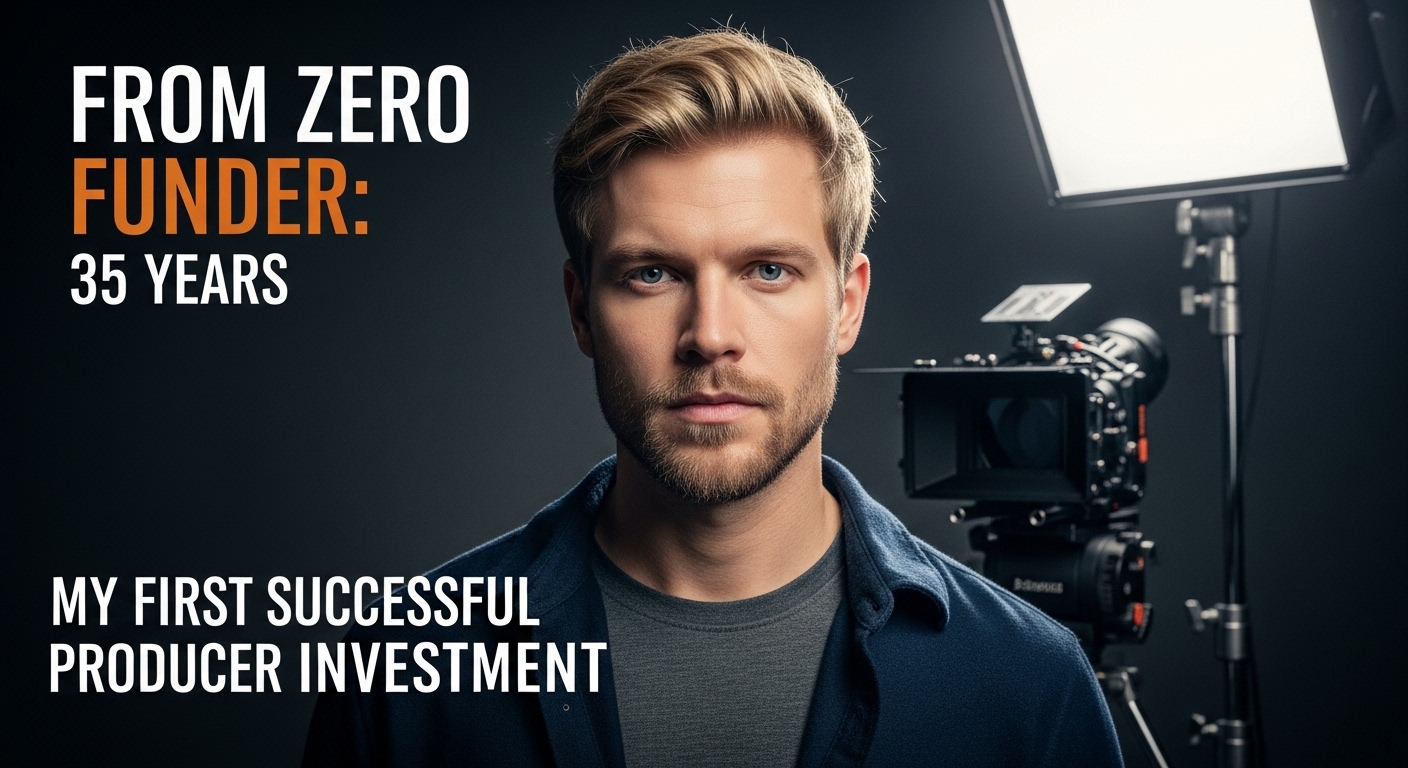Biographical Documentaries: Capturing the Essence of a Person’s Life
Biographical documentaries have become a popular form of storytelling, especially in recent years. These documentaries capture the essence of a person’s life, their struggles and triumphs, and provide an intimate look into their personal and professional lives. The art of biographical documentaries is to tell someone’s story in an engaging and insightful way while being respectful to their legacy.
Definition of biographical documentaries
A biographical documentary is a film or series that tells the story of someone’s life. It usually begins with their childhood or early career and follows them through significant events until their death or present day.
Biographical documentaries often include interviews with family members, friends, colleagues, and experts who knew the person well. They also use archival footage, photographs, and documents to help tell the story.
In contrast to biopics (biographical films), which often take creative liberties with historical facts for dramatic effect; biographical documentaries aim to stay as true as possible to the subject’s life story. Although it can be challenging to remain objective in telling someone’s life story because filmmakers may have preconceived notions about his or her personality or achievements.
Importance of biographical documentaries in capturing the essence of a person’s life
Biographical documentaries are essential because they capture important moments in history by revealing personal anecdotes that can’t be found elsewhere. They provide insight into people who have contributed significantly to society but may not receive mainstream recognition, especially among younger generations who are unaware of these individuals’ contributions.
Moreover, by sharing stories that are both inspiring and cautionary tales to future generations; biographers can create valuable educational resources for public audiences worldwide. Biographers’ works can preserve knowledge about people who made significant contributions by providing a detailed account of their lives, including their values, motives, and influences.
Brief history of biographical documentaries
Biographical documentaries have been around since the invention of film cameras. Thomas Edison’s 1897 production “The Kiss” is thought to be one of the earliest examples. However, it wasn’t until the 1920s and ’30s that biographical documentaries gained popularity as filmmakers began to use the medium to document influential people’s lives.
One of the most notable early biographical documentaries was Robert Flaherty’s “Nanook of the North” (1922), a groundbreaking film that helped establish documentary filmmaking as a legitimate art form. In more recent times, advancements in technology have allowed filmmakers to produce high-quality biographical documentaries with greater ease and lower costs than before.
Overall, biographical documentaries are an essential tool for capturing someone’s life story in a way that is both engaging and informative. Through interviews with friends and family members, archive footage or photographs; these films provide an intimate look into subjects’ personal and professional lives while preserving their legacy for future generations.
Types of Biographical Documentaries
When it comes to creating biographical documentaries, filmmakers have several approaches they can take. Each type has its benefits and challenges, and the choice depends on the documentary’s objectives and the subject of the film.
Chronological Biographies
Chronological biographies follow a subject’s life chronologically, from birth to death or present day. This type of biographical documentary is the most common approach because it allows viewers to follow a clear timeline of events in a person’s life.
Chronological biographies often feature interviews with family members, friends, or colleagues who witnessed or participated in significant moments in the subject’s life. The archival footage and photographs used in this type of documentary help bring visual elements to their story.
One challenge with chronological biographies is that they can be lengthy due to their extensive coverage of a person’s life, which may require hours of viewing time. Additionally, some subjects’ lives may not have enough material for an extended chronological biography, leaving filmmakers scrambling for filler content.
Subjective Biographies
Subjective biographies provide insight into how a filmmaker views their subject by offering commentary on key events throughout their lives while avoiding strict chronology. This approach allows filmmakers to share their perspective on various aspects of their subject’s life while including personal observations that are not always supported by facts. Subjective Biographies are an excellent choice when storytellers want to move quickly through an individual’s early years before delving more into critical events later on.
The subjective biography approach can make documentarians accused of being biased or unfair since they tend not to be as objective as other types of documentaries. Critics have argued that subjective documentaries do more harm than good by creating confusion instead of clarity about individuals’ lives.
Thematic Biographies
Thematic biographical documentaries focus on one particular aspect of the subject’s life, such as a significant event, relationship, or career. Thematic biographies explore one topic in-depth, providing more detail than a chronological biography.
Filmmakers typically use this approach when dealing with individuals who have lived long and fruitful lives or those whose lives were relatively uneventful. One potential challenge with thematic biographies is that they risk oversimplifying complex subjects by only focusing on specific aspects of their lives.
Additionally, it can be challenging to find an appropriate balance between covering the theme extensively while still providing enough information on their life story to keep viewers engaged. Biographical documentaries come in many shapes and sizes.
The type of documentary filmmakers choose depends on what they want to achieve with their film and what suits the subject best. A well-executed biographical documentary can provide valuable insight into someone’s life, inspire future generations and preserve history for years to come.
Elements of a Successful Biographical Documentary
A biographical documentary is an important tool in telling the stories of individuals who have made significant contributions to society. However, creating a successful biographical documentary requires more than just telling their story. It involves a deliberate and careful process that requires attention to detail and accuracy.
Research and Interviews
One essential element of making a biographical documentary is conducting thorough research on the subject. The research process involves gathering information about the subject’s life, including their accomplishments, challenges, and memorable moments.
This research helps to provide context for the story being told. Interviews are also an important aspect of creating a biographical documentary.
These interviews can be conducted with family members, friends, colleagues or experts in that person’s field. These interviews help provide insights into the person’s character, motivations and provide valuable anecdotes that may not be found in written sources.
Archival Footage and Photographs
Another critical element of making an excellent biographical documentary is using archival footage and photographs effectively. Archival footage enables filmmakers to create a visual narrative based on historical events happening at the time.
Similarly, photographs can evoke emotions or illustrate key moments in life. Archival footage can be found in libraries and archives or sourced from newsreels or other media outlets from that era; this footage adds authenticity to a biopic by adding real-time visuals such as news headlines on events taking place during that period under focus.
Dramatic Reenactments & Animation
When it comes to dramatizing certain events within the subject’s life, dramatic reenactments come into play- they bring scenes which might have been difficult otherwise due to lack of visuals alive through actors dressed as characters from that time period living out those scenes with dialogue that’s true to history as well. Animation provides storytellers with a highly creative way to represent aspects of the story that might be difficult to capture through traditional footage or reenactments.
This technique can also help to illustrate concepts and events for which there is no existing footage. The use of these elements in making biographical documentaries helps bring the subject’s life to light, making it more understandable and relatable to viewers while preserving our human history.
Notable Examples of Biographical Documentaries
Documentaries have become increasingly popular, especially biographical ones that offer the audience a glimpse into the life and experiences of some remarkable individuals. It can be said that biographical documentaries are among the most informative and thought-provoking films out there, as they provide us with an in-depth look at a person’s life journey, successes, trials, challenges, and more. In this section, we will look at some notable examples of biographical documentaries.
Amy (2015) – Amy Winehouse
“Amy” is a documentary film that delves into the life of Amy Winehouse – one of the most iconic singers and songwriters of our time. The film takes us through different stages of her career – from her early days in North London to her rise to fame as an international artist with hit songs such as “Rehab,” “Back to Black,” and many others. The director Asif Kapadia uses archival footage along with interviews from friends and family members to paint a vivid picture of Winehouse’s troubled yet brilliant life.
What makes “Amy” stand out is its unflinching honesty about Winehouse’s struggles with addiction, mental health issues, and how these impacted her music career. The film won several awards for its poignant portrayal of a talented young woman who died too soon.
RBG (2018) – Ruth Bader Ginsburg
“RBG” is a biographical documentary on Ruth Bader Ginsburg – a legal icon who made significant contributions to gender equality in America during her tenure as a Supreme Court Judge. Directed by Julie Cohen and Betsy West, this documentary explores Ginsburg’s journey from being a law student to becoming one of the most influential women in American law history.
The filmmakers use interviews with Ginsburg’s family members, friends, colleagues, and even Ginsburg herself to capture her life story and impact on American society. The documentary also portrays Ginsburg’s fight against gender discrimination and how her landmark cases helped shape the legal landscape for women’s rights.
The Beatles: Eight Days a Week (2016) – The Beatles
“The Beatles: Eight Days a Week” is a biographical documentary that explores the rise of one of the most iconic bands in music history – The Beatles. Directed by Ron Howard, this film takes us back to the early 1960s, where John Lennon, Paul McCartney, George Harrison, and Ringo Starr rose to fame with their unique sound and style.
The film uses archival footage from concerts, interviews, and behind-the-scenes moments to give viewers an inside look at how the band evolved over time – from their early gigs at Liverpool pubs to playing sold-out shows at iconic venues like Shea Stadium in New York City. “Eight Days a Week” is an excellent tribute to The Beatles’ contribution to music history and their impact on pop culture.
Challenges in Making a Biographical Documentary
Legal issues with using copyrighted material
One of the biggest challenges in making a biographical documentary is navigating the legal landscape surrounding the use of copyrighted material. Documentarians must obtain permission to use songs, photographs, and other materials owned by others, which can be costly and time-consuming.
Failure to acquire proper permissions could result in potentially significant legal consequences. In some cases, documentarians may also face claims of defamation or invasion of privacy as a result of the inclusion of certain content.
To mitigate these challenges, many biographical documentarians work with entertainment lawyers who specialize in copyright law to ensure all necessary permissions are obtained. Additionally, some filmmakers negotiate fair use exemptions for copyrighted material they believe is essential to their storytelling.
Bias in storytelling
Another challenge faced by biographical documentarians is achieving an unbiased portrayal of their subject while still maintaining audience interest. It’s easy for filmmakers to fall into the trap of focusing solely on the positive aspects of their subject’s life or conversely portraying them negatively. However, this approach can lead to an incomplete and inaccurate portrayal that doesn’t capture the full essence of their subject’s life.
To combat bias in storytelling, documentarians strive for objectivity by conducting thorough research that includes interviewing people who knew their subject and reviewing primary source documents where available. They may also cross-check information with multiple sources to ensure accuracy.
Finding the right balance between entertainment and accuracy
Finding the right balance between entertainment value and accuracy can be another challenge when creating biographical documentaries. Filmmakers want to create a product that will captivate audiences while still telling an accurate story about their subject’s life. One way filmmakers strike this balance is through creative editing techniques like reenactments and animation that help illustrate important events without straying from fact-based storytelling.
Another way is by selecting a narrative structure that keeps the audience engaged while still conveying information accurately. Overall, the challenges in making a biographical documentary are numerous, but with careful planning and expertise, documentarians can create compelling films that capture the essence of their subject’s life.
The Importance of Biographical Documentaries in Preserving History
Biographical documentaries are one of the most effective ways to preserve history. These films capture and present the life stories of important figures in society, who have played a significant role in shaping our world.
These documentaries allow us to learn about and appreciate the contributions of these individuals, as well as gain insight into the time periods they lived in. Without biographical documentaries, much of this valuable information would be lost to future generations.
By documenting important historical events through the lives of individuals, we can ensure that their stories are kept alive for future generations. Biographical documentaries help us to better understand our past, appreciate those who came before us, and learn from their experiences.
The Future Potential for Biographical Documentaries with New Technology Advancements
With new technology advancements emerging every day, there is great potential for biographical documentaries in the future. The use of virtual reality technology could allow us to experience historical events and places like never before. Similarly, advances in animation could make it possible to create more realistic reenactments of historical events.
Additionally, with social media platforms like YouTube providing accessible platforms for short-form content distribution, biographers can share their works more easily than ever before. This means that more people than ever will have access to biographies on a wide range of subjects – from well-known historical figures such as Martin Luther King Jr., Abraham Lincoln or Winston Churchill – to lesser-known but equally important figures from all walks of life.
The Significance of Sharing Stories to Inspire Future Generations
Sharing stories is an essential part of human culture; it allows us to connect with each other and understand our place in the world. Biographical documentaries play an important role in sharing stories that inspire future generations by showcasing people who have overcome adversity or made significant contributions to society. These films not only inform but also inspire audiences to believe in themselves and their dreams.
Through the stories of individuals, viewers can learn valuable lessons about perseverance, determination, and the power of conviction. Biographical documentaries are an essential tool for preserving history and inspiring future generations.

These films provide insight into the lives of important figures who have shaped our world and teach us valuable lessons about our past. With new technology advancements on the horizon, we can look forward to even more exciting developments in this field that will allow us to learn and share stories like never before. We also wrote other article that might be helpful like: Power & Challenges of Investigative Journalism Docs: Uncovering the Truth and Documentaries on Human Rights Issues: Seeing Beyond the Lens .
What is a biographical documentary?
A biographical documentary is a type of documentary film that tells the story of a person’s life. It can focus on any aspect of the person’s life, from their childhood to their career to their death. Biographical documentaries often use interviews, archival footage, and reenactments to tell the story.
What are some of the most famous biographical documentaries?
Some of the most famous biographical documentaries include:
- Man on Wire (2008): This documentary tells the story of Philippe Petit, who walked a tightrope between the Twin Towers of the World Trade Center in 1974.
- Searching for Sugar Man (2012): This documentary tells the story of Sixto Rodriguez, a Detroit-based singer-songwriter who became a cult hero in South Africa without ever knowing it.
- The Act of Killing (2012): This documentary follows Anwar Congo and Herman Koto, two Indonesian men who were members of death squads during the 1965-66 genocide.
- Amy (2015): This documentary tells the story of Amy Winehouse, a British singer-songwriter who died of alcohol poisoning in 2011.
- Won’t You Be My Neighbor? (2018): This documentary tells the story of Fred Rogers, the beloved children’s television host.
What are some of the challenges of making a biographical documentary?
One of the biggest challenges of making a biographical documentary is finding the right balance between fact and fiction. Filmmakers must be careful not to sensationalize the story, but they also need to make it engaging and entertaining. Another challenge is finding access to the subject of the documentary. Some people are reluctant to share their stories, and others may be difficult to track down.
What are some of the benefits of making a biographical documentary?
Biographical documentaries can be a powerful way to tell stories about people who have made a difference in the world. They can also be a way to learn about different cultures and perspectives. Additionally, biographical documentaries can be a source of inspiration and hope.
What are some of the different types of biographical documentaries?
There are many different types of biographical documentaries, but some of the most common include:
- Traditional biographical documentaries: These documentaries tell the story of a person’s life in a straightforward and chronological manner.
- In-depth biographical documentaries: These documentaries go into more detail about a person’s life, exploring their motivations, their relationships, and their accomplishments.
- Creative biographical documentaries: These documentaries use creative techniques, such as reenactments, animation, or music, to tell the story of a person’s life.
What are some of the different ways to tell a biographical documentary story?
There are many different ways to tell a biographical documentary story. Some common techniques include:
- Interviews: Interviews with the subject of the documentary, their friends, family, and colleagues, can provide valuable insights into their life and work.
- Archival footage: Archival footage, such as home movies, newsreels, and television appearances, can help to bring the subject’s life to life.
- Reenactments: Reenactments can be used to fill in the gaps in the story or to provide a different perspective on events.
- Narration: Narration can be used to guide the viewer through the story and to provide context.
What are some of the ethical considerations involved in making a biographical documentary?
There are many ethical considerations involved in making a biographical documentary. Some of the most important include:
- Respect for the subject’s privacy: Filmmakers must respect the subject’s privacy and should not include information that the subject does not want to share.
- Accuracy: Filmmakers must strive to be accurate in their portrayal of the subject’s life.
- Fairness: Filmmakers must be fair to the subject and should not portray them in a negative light without good reason.
What are some of the future trends in biographical documentaries?
Biographical documentaries are a popular and growing genre of film. Some of the future trends in biographical documentaries include:
- The use of new technologies: Filmmakers are using new technologies, such as virtual reality and augmented reality, to tell biographical stories in new and innovative ways.
- The focus on diverse subjects: Filmmakers are increasingly focusing on diverse subjects, such as women, people of color, and LGBTQ+ individuals.
- The use of social media: Filmmakers are using social media to connect with audiences and to promote their films.
- here are some more things to know about biographical documentaries:
- Biographical documentaries can be a great way to learn about history and current events. They can also be a way to connect with people from different cultures and backgrounds.
- Biographical documentaries can be inspiring and motivating. They can show us what is possible if we set our minds to something.
- Biographical documentaries can be educational and entertaining. They can teach us about different subjects in a way that is both engaging and informative.
- Biographical documentaries can be a powerful tool for social change. They can raise awareness about important issues and inspire people to take action.
- If you are interested in learning more about biographical documentaries, there are many resources available online and in libraries. You can also find biographical documentaries on streaming services such as Netflix and Hulu.

I am a highly experienced film and media person who has a great deal to offer to like-minded individuals. Currently working on several exciting projects, I am a film and media practitioner for over a decade. I have achieved a great deal of success in my professional career.





